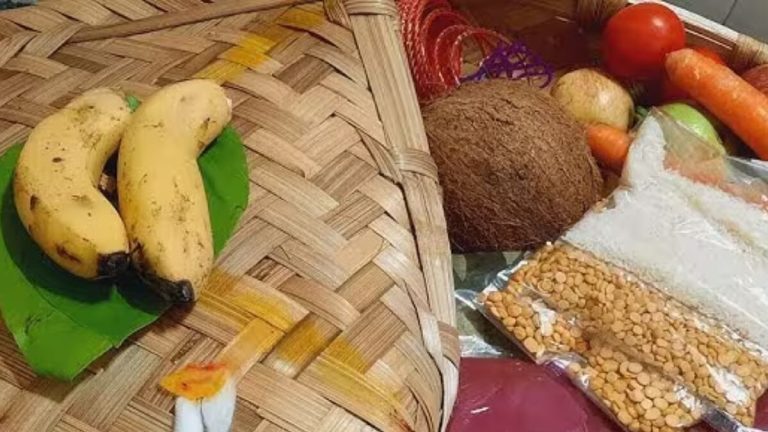Last updated:

Bagina is often considered a symbol of the love and blessings given by the mother's home.
It is generally believed that offering bagina in moula to a married woman will enhance her lineage, bring wealth and prosperity, and fulfill all her wishes in life.
Bagina is an important tradition for Hindus and symbolizes the bond between mother and daughter. It is often considered as a symbol of the love and blessings given by a mother to her married daughter, especially during the Gauri Haba festival. According to multiple media reports, the daughters eagerly awaited this special gift from their mother during the festive season.
The word bagina means prosperity, and in rural areas it is often referred to as “giving kai (gift)”. This tradition is very important among the people. In a recent interview with Local 18, astrologer Ashwath Narayana Joshi from Chikkamagaluru, Karnataka, explained the purpose behind this tradition and talked about the religious significance.
There is a tradition of placing bagina in a mora (basket). According to religious beliefs, the mola or basket represents the continuation of the lineage. It is generally believed that offering bagina in moula to a married woman will enhance her lineage, bring wealth and prosperity, and fulfill all her wishes in life. Astrologers mention that this is a very important ritual performed by mothers for their married daughters. This year's Gaoli Haba Festival is on September 6th.
What should be included in a Bagina?
A bagina is a priceless gift, usually sent from one's parents' home. It usually contains items that symbolize good luck such as turmeric, vermilion, bangles, toe rings, mangalsutra, traditional utensils, nine grains, vegetables, sarees and betel leaves. The items are placed in a mora and covered with another mora before being sent to the daughter's matrimonial home. Astrologer Ashwath Narayana says, “All items should be packed with two molas and sent to the daughter's matrimonial house. This auspicious ritual ensures happiness and prosperity in the daughter's life.
In modern times, this tradition has evolved, with some people choosing to donate money instead of the traditional bajina. However, the essence of this custom lies in its deep-rooted meaning of honor and blessing, symbolizing the daughter's connection to her natal family, which remains a valuable responsibility to the family.
